In light of the ongoing COVID-19 pandemic, we will continue to adapt as needed to follow state and local guidelines. Safeguarding the health and safety of our staff, partners, and grant applicants is a top priority.
Sasaki Foundation
We leverage design to tackle global challenges—especially those that adversely affect historically underrepresented communities.
Call for Proposals
If you have ideas on how to tackle climate adaptation, housing or transit inequities or displacement of residents, or how to foster community building and wellbeing, apply today for one of our design grants.
The deadline to apply is May 4, 2022, at noon.
See our most recent Design Grants winners here.
Grants
We will award $15,000 Action Grants, $7,500 Discovery Grants, and $2,500 Exploration Grants.
Grants include engagement with the Sasaki Foundation and access to design expertise from Sasaki professionals.
We Need You
No matter who you are, we need your skills.
We are looking for interdisciplinary, creative approaches to test new design concepts that address complex challenges in our communities.
“What usually aids in the intelligent flowering of the design is the success of the collaborative effort of all.”
—Hideo Sasaki, 1953
The call for proposals
Shared Voices
Charting a Course for Community Action
The challenges in addressing environmental resilience, displacement, affordable housing, access to mobility choices, meaningful public engagement, and other social equity considerations in planning and design are so broad and complex, they require a shared approach to facilitate all the necessary conversations and deliver actionable solutions. Most of these challenges faced by Boston communities are not limited to local neighborhoods—their effects are felt and shared across the Commonwealth and beyond. Multiple futures are at stake, and we can make a difference by acting now.
The Sasaki Foundation recognizes the need for interdisciplinary approaches, diverse community voices, and regional cooperation as key drivers to find shared solutions and create shared impact.
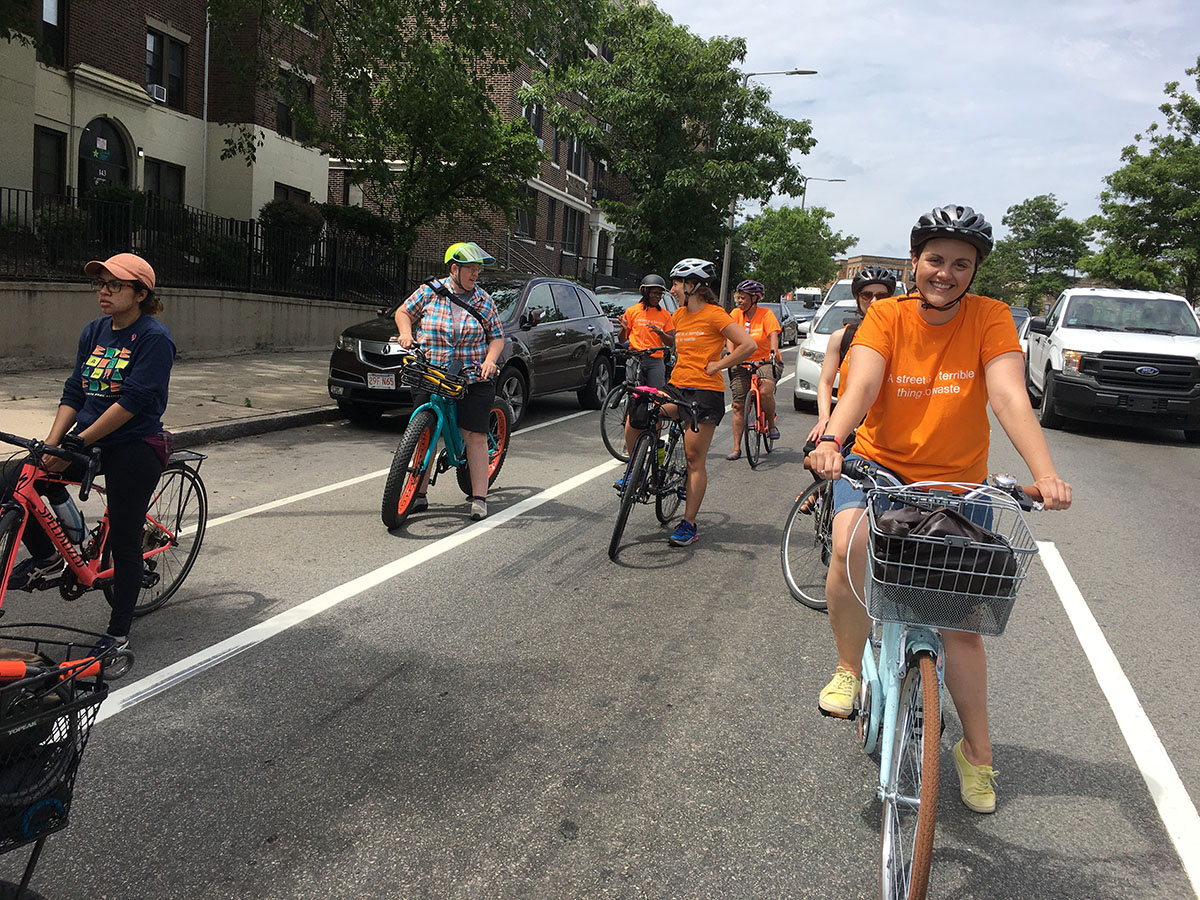
Bike ride for gender equity in Columbia Road on July 11, 2021
photo courtesy Columbia Road Gender and Mobility Initiative
1
Proactive Approaches to Climate Adaptation
We are seeking responses to extreme heat, stormwater and flash flooding, and coastal and river flooding. In cities like Boston, climate change issues, especially environments with the urban heat island effect and flooding, disproportionately impact communities of color and low-income communities.
- What is your vision for a collaborative approach to mitigate the impacts of climate change?
- Are you doing something to increase climate resilience in your community that can scale to greater impact?
2
New Models for Housing
We are seeking strategies to improve housing affordability, promote a more diverse housing stock, and address gentrification and displacement. Like many cities, Boston’s housing shortage requires innovative approaches to planning and design. Displacement of families, caused by economic and environmental forces, is exacerbated by the limited supply of affordable, family-oriented housing units.
- What is your innovative solution to provide better access to affordable housing and improve public health for more people?
- How are you strengthening existing networks in your community, as displacement increases?
3
Innovation in Transit and Access to Mobility Choices
We are seeking design strategies and solutions for existing challenges to reliable transit, strengthening public-private partnerships in expanding transportation choices and leveraging technology to provide greater access to transportation options by eliminating barriers. Greater Boston’s local mobility networks and regional systems have tremendous potential to improve accessibility and safety for users. Methods for leveraging private-sector innovation to increase transportation access for all communities present a powerful opportunity.
- What actions can improve your community’s mobility choices and transportation access, particularly in communities of color and low-income communities?
- How could better access to technology improve mobility for your community?
4
Creative Community Building
We are seeking themes of collective memory and community storytelling, investment in historic neighborhood fabric, and local business development. Designing and planning for our Greater Boston communities can extend beyond the concept of placemaking to include the idea of placekeeping—the preservation of local identity through strengthening social bonds, celebrating neighborhood history, and developing strategies for enhancing neighborhood retail, food, and health services.
- How do we preserve cultural identity while reinvigorating the social and economic well-being of a given community?
- How can we build local capacity for economic development and promote local entrepreneurship?
- How can we better leverage technology, and what opportunities do we have to create tools for better decision making and more equitable connectivity?
5
Innovation in Health and Wellbeing
We are seeking efforts to enhance community health through the built environment. The COVID-19 pandemic has demonstrated how important equitable access to outdoor spaces and creative reuse of the public realm are to our collective community health. Co-designing innovative solutions can allow our communities to begin to create a more just and fair built environment in cities across Greater Boston.
- How can your community expand access to open space and the public realm to allow for greater health and wellness?
- How might we positively impact access to health and wellness opportunities?
Evaluation Criteria
1
Design
We seek proposals that utilize interdisciplinary thinking to challenge the status quo. We support design ideas that actively engage and contribute to communities. Winning teams will have actionable ideas. Proposals will be judged on both creativity and feasibility, and should address resilience and equity through the lens of one of the topics discussed in Section 04.
2
Equity
We seek proposals that benefit historically underrepresented communities through strategies aimed at eliminating systemic barriers. Winning teams will show how their projects will meet the unique needs of a community through a high level of collaboration with community representatives.
3
Inclusion
We value diverse perspectives and seek to find inclusive processes that make space for dialogue and difference. We especially encourage proposals from women; transgender, genderqueer, or gender non-conforming individuals; members of racial or ethnic minorities; and individuals with physical and/or intellectual disabilities.
4
Innovation
We seek proposals that foster innovation, creativity, and interdisciplinary approaches to design. Special attention will be given to teams that propose forward-thinking, rather than reactive, concepts and ideas.
5
Impact
We seek proposals that can produce positive impacts within the communities they serve. Winning projects will exhibit scalability or replicability across other communities with similar characteristics.
Jury
Our jurors are representatives from design, transit, housing, and environmental organizations. We will update this page as jurors are confirmed.
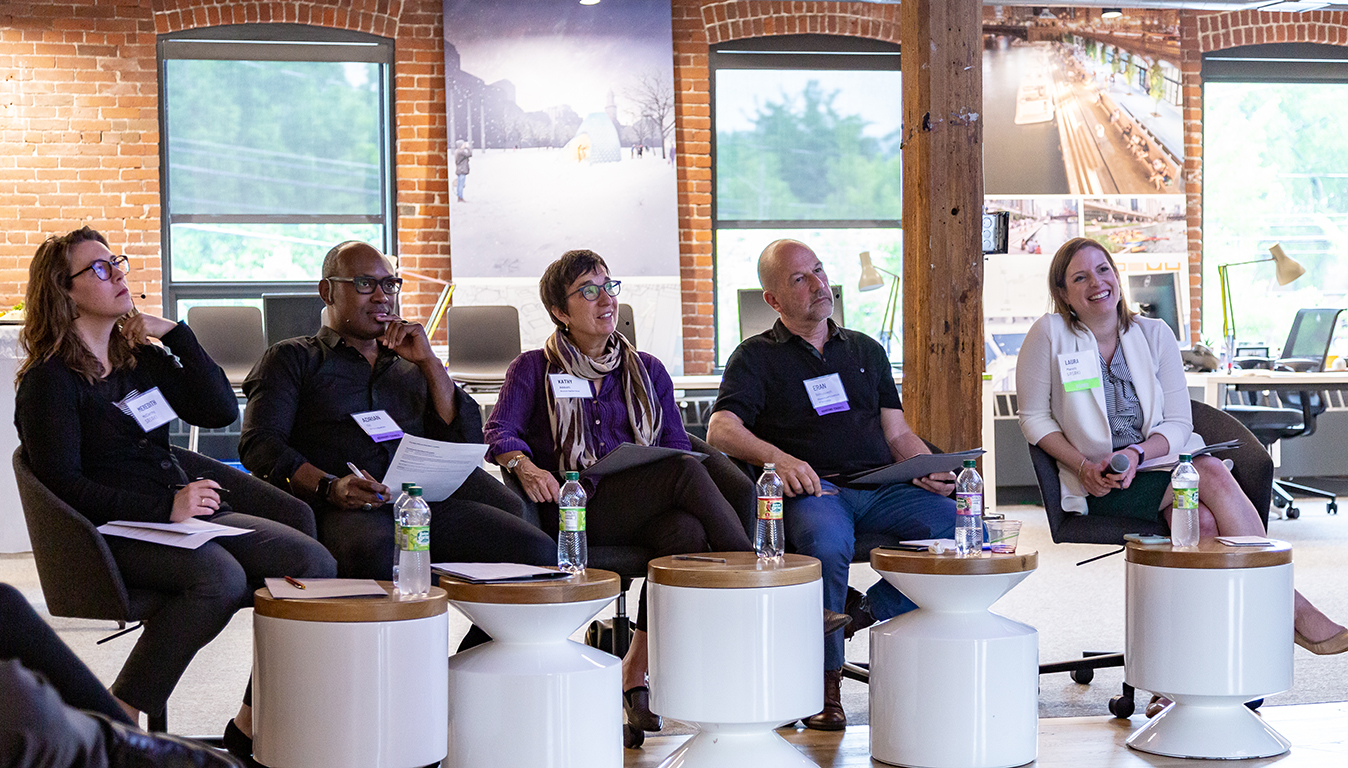
Pitch Night 2019
Program Guidelines
Access to Sasaki Designers
During the 10-month grant period, winning teams will have dedicated time to connect with Sasaki design professionals including architects, civil engineers, graphic designers, interior designers, landscape architects, planners, urban designers, and data analytics and visualization experts. Winning teams may also benefit from Sasaki’s Fabrication Studio and design software.
Community Focus
Equity is one of the cornerstones of the Sasaki Foundation’s research, and all winning proposals must have a community focus located in Greater Boston, the Gateway Cities, or Metro West. A community advisor, such as a local leader, non-profit professional, designer, artist, business leader, or other individual from the project’s focus community, must be an active member of the team.
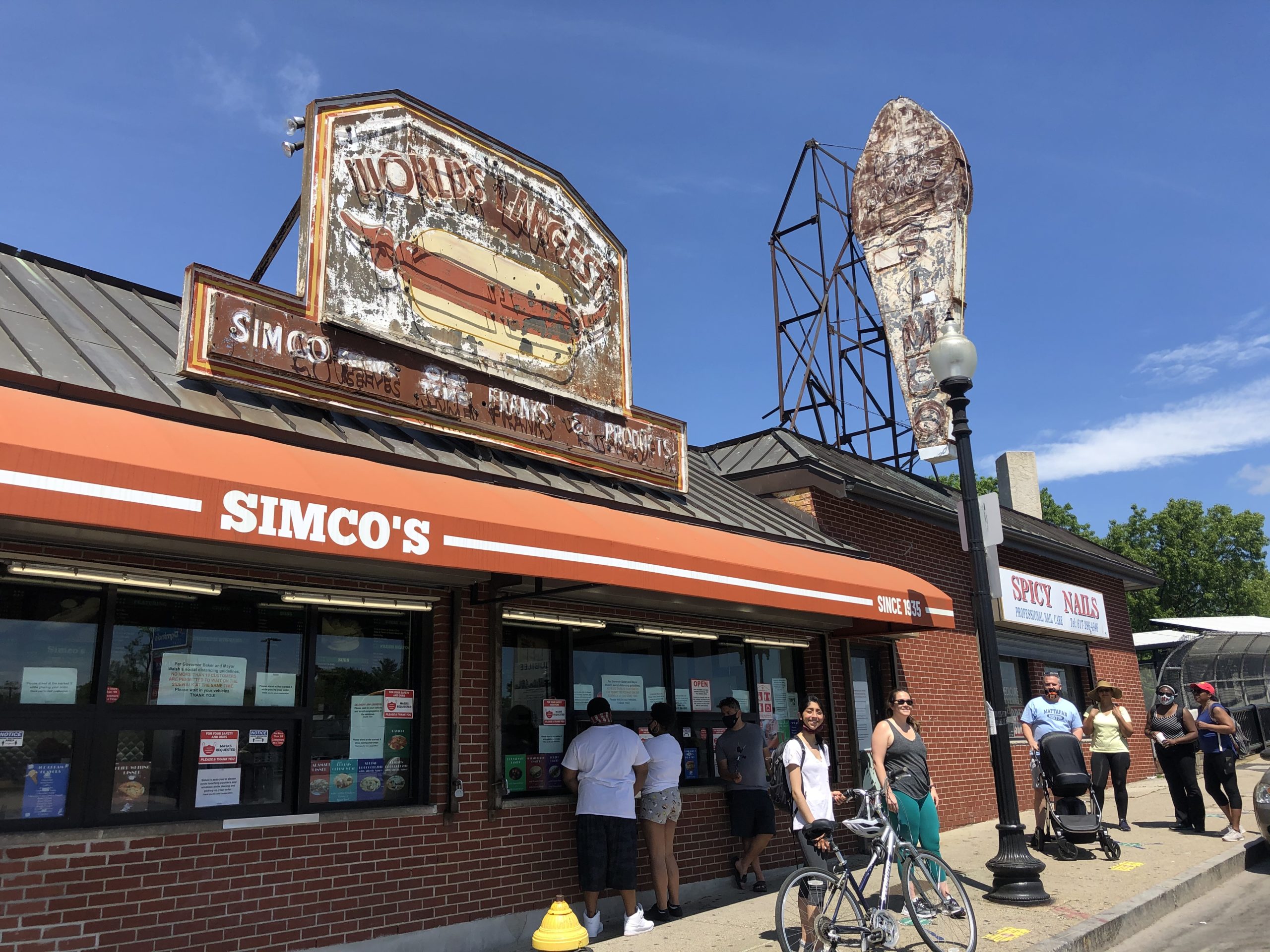
The Mattapan Mapping Project team members on a community walk
photo courtesy The Mattapan Mapping Project
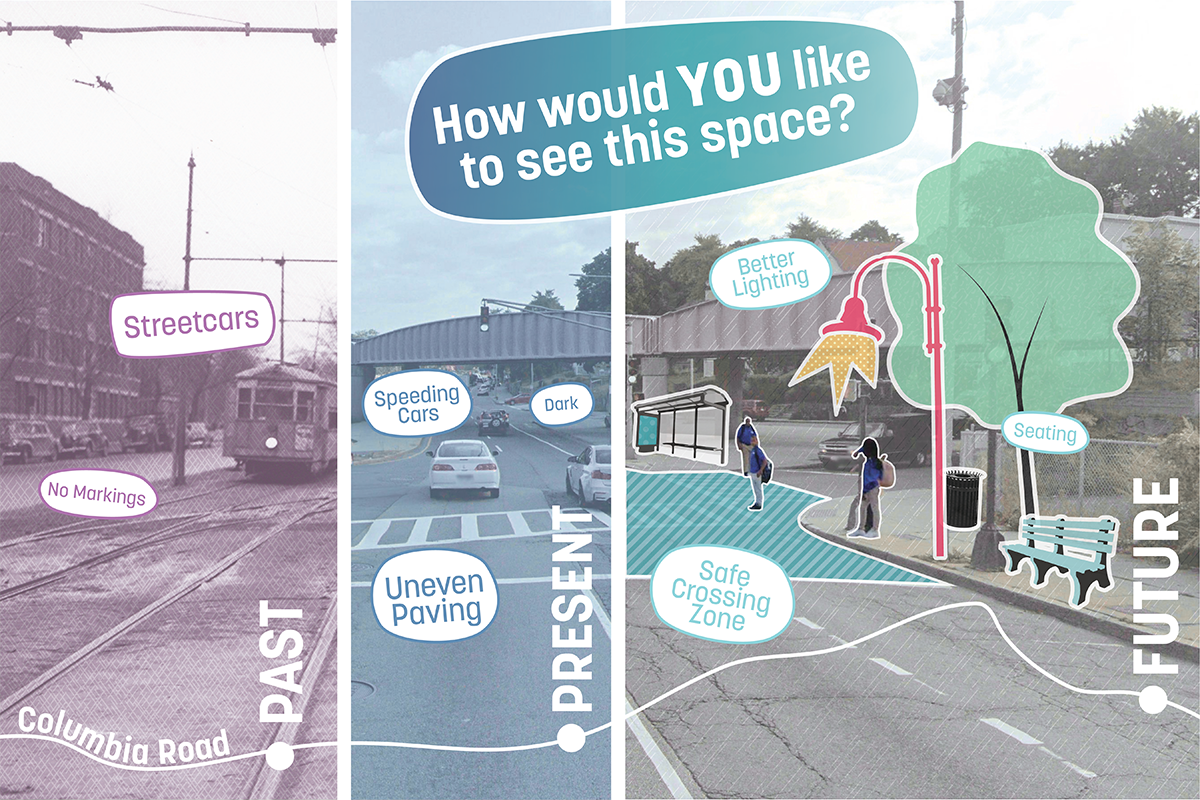
Columbia Road, Past, Present, and Future
Columbia Road Gender and Mobility Initiative in partnership with Sasaki
Team Approach
Applicants must be teams of two to four individuals. One of these individuals must be from the project’s focus community. Teams may consist of individuals or representatives of nonprofits, civic, and community organizations coming together for the purpose of this proposal. We encourage teams to be multidisciplinary in their composition and thinking.
Storytelling
We expect teams to create a compelling narrative describing how their design ideas or projects meet the specific needs of their community. Part of this narrative will include a plan for outreach and engagement for their focus community.
Deliverables
Applicants will submit a plan of work, including projected use of funds and total projected budget. Winning teams will connect regularly with the Sasaki Foundation and Sasaki designers to support team needs. All teams will complete an executive summary, and Discovery and Action Grants will complete a final report, for inclusion in the annual Sasaki Foundation Design Grants Research publication. Discovery and Action Grants also will include a final presentation.
Open Source
To ensure the dissemination of the strategies generated through this effort, teams will commit to their project concepts and ideas being open source. Winning teams will focus on the development of design-thinking methods and digital tools that can help stimulate communities’ abilities to express themselves and their needs, with an emphasis on collaboration and co-production.
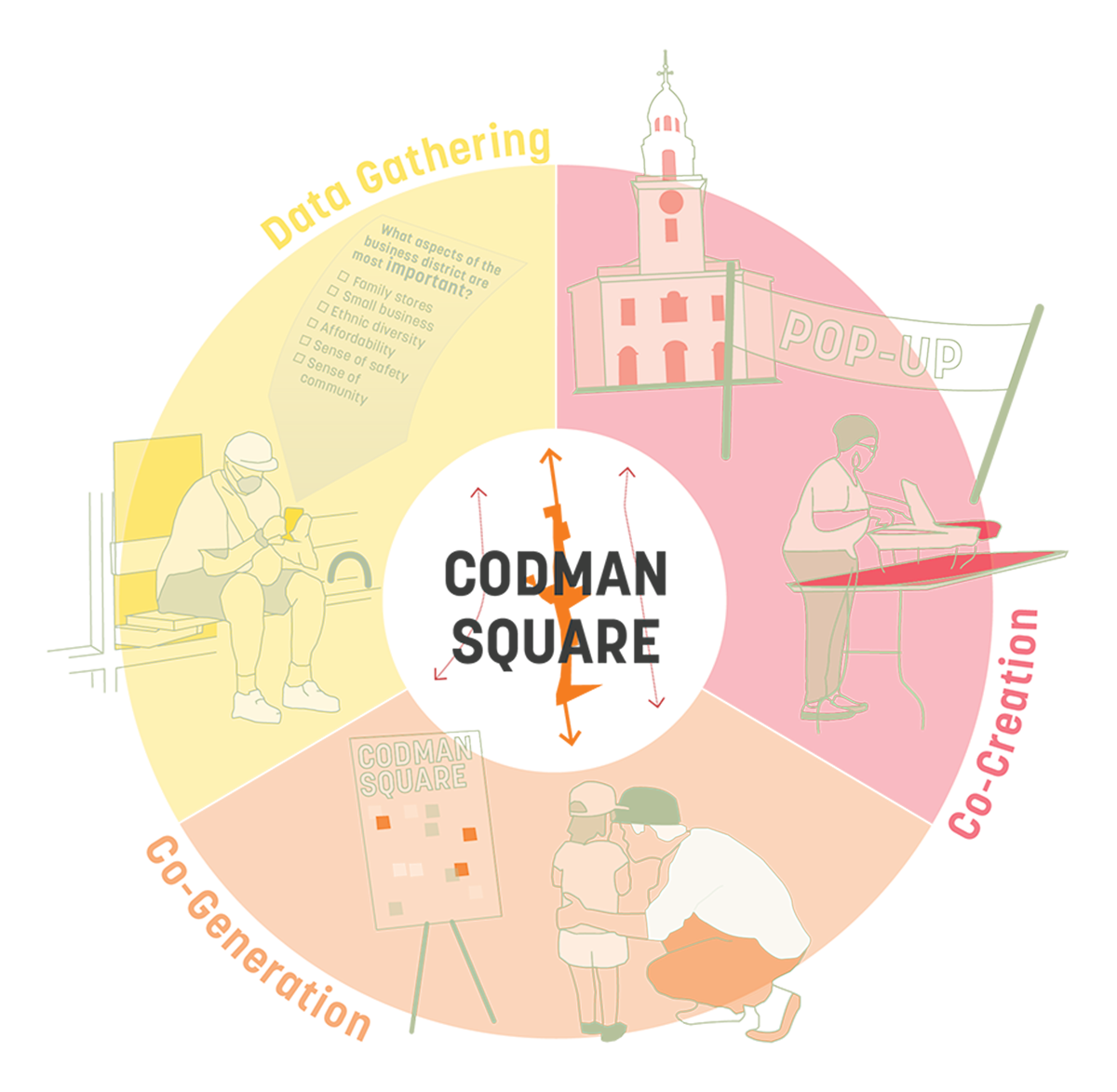
Codman Square Project Process
Economic Development in Codman Square in partnership with Sasaki
What to Expect
Teams will benefit from engagement with Sasaki’s design professionals and technology, access to the Sasaki Foundation’s network, and collaboration with the Design Grants cohort. During the grant period, the cohort will have regular access to Sasaki collaborators for project guidance.
“G{Code} is honored to be a part of the inaugural Design Grants cohort and its mission to include equity and inclusion in planning and design. It takes a village to do this work that we hope will be impactful and life-changing.”
— Bridgette Wallace, G{Code} House, 2018-2019 Design Grants cohort team
Teams will participate in the following:
- Dedicated time with Sasaki designers that will help shape the projects
- Monthly cohort meetings attended by Sasaki designers (optional for Exploration Grants)
In light of the pandemic we will adapt this programming as needed to follow state and local guidelines.
Teams will deliver the following:
- Project work plan and projected budget
- Exploration Grants work plan should include research done to explore feasibility and interest in the focus community along with a plan for future programming.
- Discovery and Action Grants work plans should include specific actionable deliverables, including but not limited to research, community engagement, design creation, pilot testing, and installations.
- Executive summary of project outcomes, along with photographic documentation and visuals
- Final presentation (optional for Exploration Grants)
- Final report (Discovery and Action Grants only)
Executive summaries and final reports will be available as open source on the Sasaki Foundation website and in the annual research publication.
Timeline: 2022
February 8
Call for Proposals issued — rolling submissions
March 10
Open House for applicants conducted virtually
April 7
Open House for applicants conducted virtually
May 4
Deadline to submit applications
May 16
Finalists announced
May 25
Pitch Night for finalists
June 10
Grant winners notified and announced
September 2022 – June 2023
Grant period
From Energy Security to Energy Shift, In Boston and Beyond design charrette with Sasaki
Questions
Open Houses & Pitch Night
The first virtual Open House for applicants took place at noon on Thursday, March 10. The second took place at 5:30 p.m. on Thursday, April 7.
Pitch Night will be conducted on Wednesday, May 25, from 5:30 to 7:30 p.m.
